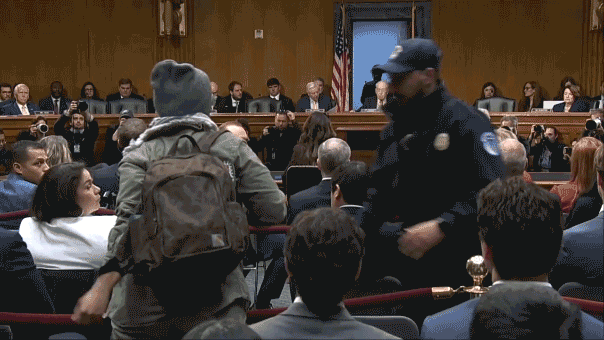Biden reacts to Roe v. Wade draft decision: 'Whole range of rights are in question'
The president reacted to the leak, warning overturning Roe v. Wade would be a 'fundamental shift' as abortion policy would be up to the states.
A 1973 landmark decision from the Supreme Court that granted federal protections for abortion could soon be overturned amid the revelation of a draft opinion from one of the court's conservative justices, potentially leaving states to determine how to handle the procedure within their borders.
The 7-2 ruling in Roe v. Wade, which made it illegal to regulate abortions for women in their first trimester of pregnancy, came on Jan. 22, 1973 after months of deliberation and two sets of oral arguments at the court.
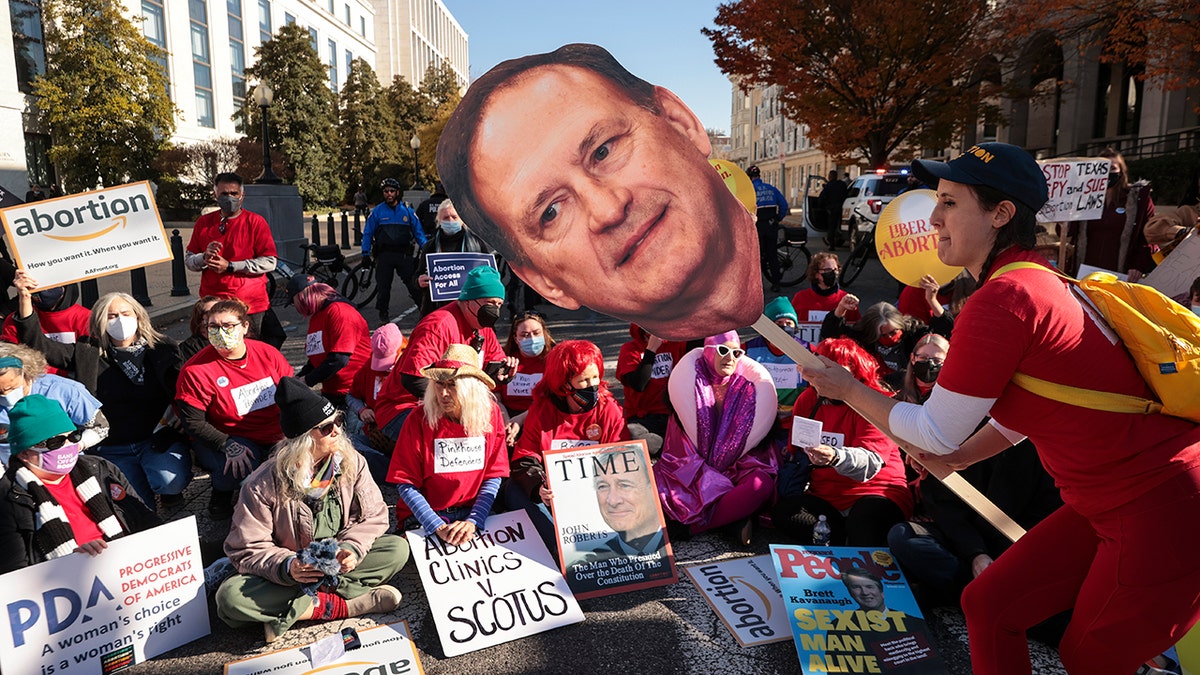
An activist with The Center for Popular Democracy Action holds a photo of U.S. Supreme Court justice Samuel Alito as they block an intersection during a demonstration in front of the U.S. Supreme Court on Dec. 1, 2021 in Washington, DC. (Chip Somodevilla/Getty Images)
Norma McCorvey, identified as Jane Roe in the case, became pregnant in 1969 and wanted to have an abortion. At the time, abortions were outlawed in Texas except in cases of rape, incest or to save the life of the mother. With the help of two recent University of Texas law students, a lawsuit was brought about on McCorvey's behalf. That lawsuit claimed McCorvey's constitutional rights were violated and that she had a right to an abortion in her home state of Texas.
The U.S. District Court for the Northern District of Texas agreed that the state's denial of McCorvey to have an abortion in the state was unconstitutional, pointing to her right to privacy found in the Ninth Amendment. Eventually, after an appeal from the state, the case found its way to the Supreme Court in 1970.

Portrait of Norma McCorvey (Jane Roe in Roe v. Wade) after she admitted she had not been gang raped when she sought an abortion in 1970. (Cynthia Johnson/Getty Images)
The Supreme Court ruled that state laws prohibiting abortions — except to save the life of the mother — were unconstitutional under the 14th Amendment, which says no state "shall make or enforce any law which shall abridge the privileges or immunities of citizens" of the United States.
The Supreme Court may deliver a dramatic change to abortion jurisprudence in Dobbs v. Jackson Women's Health Organization, a Mississippi abortion case. This could potentially allow states to radically change access to the procedure.
A leaked draft opinion from February that was published by Politico on Monday indicated that the court may move in that direction, though the decision wasn't final.

Pro life demonstrators stand in front of the US Supreme Court building during the annual Right To Life March, Washington DC, Jan. 22, 1988. (Mark Reinstein/Corbis via Getty Images)
"We hold that Roe and Casey must be overruled," Justice Samuel Alito wrote in the document, labeled the "Opinion of the Court" for the case Dobbs v. Jackson Women's Health Organization. "It is time to heed the Constitution and return the issue of abortion to the people’s elected representatives."
Alito also noted the "sharply conflicting views" Americans hold on the subject.
"Some believe fervently that a human person comes into being at conception and that abortion ends an innocent life," he wrote. "Others feel just as strongly that any regulation of abortion invades a woman's right to control her own body and prevents women from achieving full equality. Still others in a third group think that abortion should be allowed under some but not all circumstances, and those within this group hold a variety of views about the particular restrictions that should be imposed."
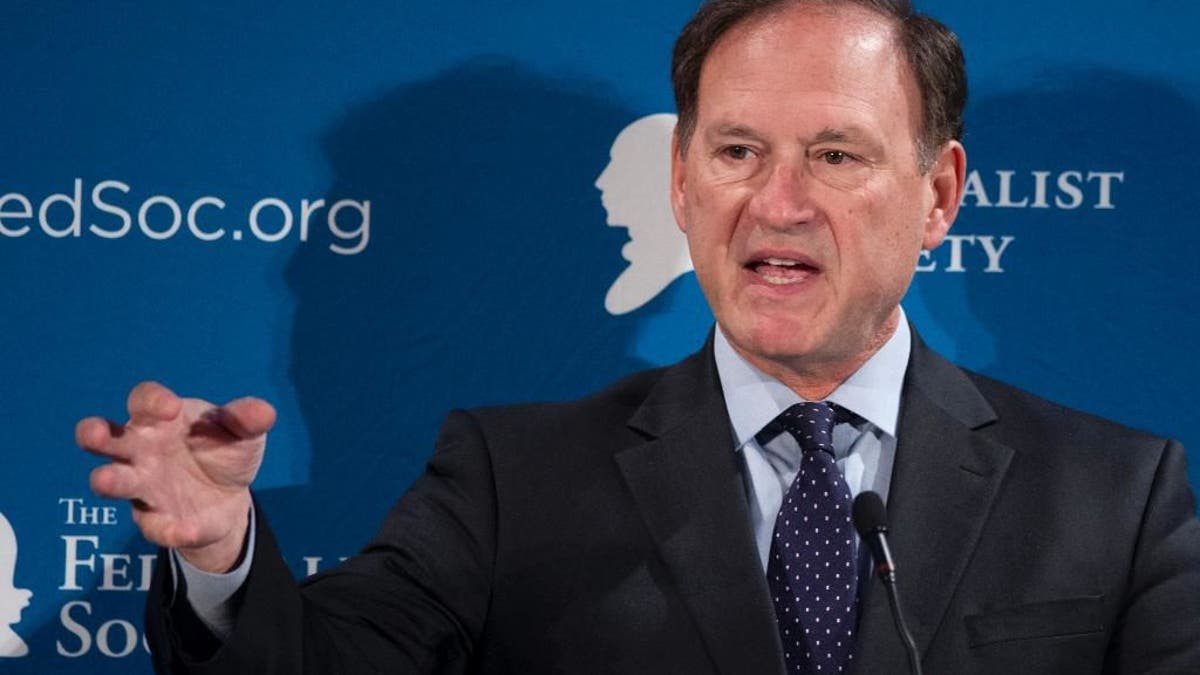
Supreme Court Justice Samuel Alito speaks at the Federalist Society's National Lawyers Convention in Washington, Thursday, Nov. 17, 2016. (AP Photo/Cliff Owen)
Observers previously suggested the court's conservative majority will strike down decades of precedent following Roe v. Wade. In doing so, it could allow state legislatures to pass laws banning abortions prior to fetal viability.
REPORTER'S NOTEBOOK: WHAT THE SUPREME COURT'S LEAKED DRAFT OPINION MEANS FOR CONGRESS
It's also possible that the court will set a new, vague standard for abortion restrictions — opening the floodgates for additional litigation and slowing Republicans' efforts to prohibit the procedure.
Twenty-six states are certain or likely to ban abortion if Roe v. Wade is overturned, according to the pro-abortion rights think tank the Guttmacher Institute. Of those, 22 states already have total or near-total bans on the books that are currently blocked by Roe, aside from Texas. The state’s law banning it after six weeks has already been allowed to go into effect by the Supreme Court due to its unusual civil enforcement structure. Four more states are considered likely to quickly pass bans if Roe is overturned.

Participants in the anti-abortion rally "March for Life" let their views be known making their way to the Supreme Court. (Bettmann Archive/Getty Images)
Sixteen states and the District of Columbia, meanwhile, have protected access to abortion in state law.
This year, anticipating a decision overturning or gutting Roe, eight conservative states have already moved to restrict abortion rights. Oklahoma, for example, passed several bills in recent weeks, including one that goes into effect this summer making it a felony to perform an abortion. Like many anti-abortion bills passed in GOP-led states this year, it does not have exceptions for rape or incest, only to save the life of the mother.
The Supreme Court responded Tuesday to the leaked draft opinion that was published by Politico and confirmed its authenticity, with Chief Justice John Roberts condemning the leak and calling for an investigation into the source.
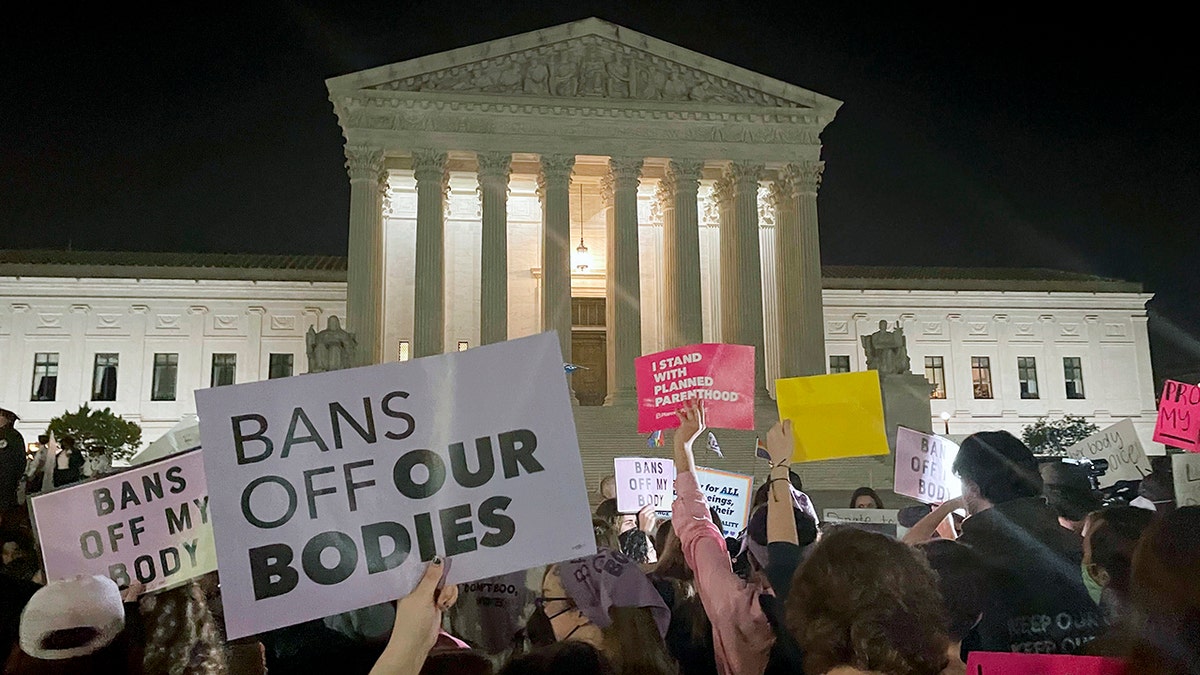
A crowd of people gather outside the Supreme Court, Monday night, May 2, 2022 in Washington following reports of a leaked draft opinion by the court overturning Roe v. Wade. (AP Photo/Anna Johnson)
"Justices circulate draft opinions internally as a routine and essential part of the Court’s confidential deliberative work. Although the document described in yesterday’s reports is authentic, it does not represent a decision by the Court or the final position of any member on the issues in the case," the court said.
CLICK HERE TO GET THE FOX NEWS APP
"To the extent this betrayal of the confidences of the Court was intended to undermine the integrity of our operations, it will not succeed. The work of the Court will not be affected in any way," Roberts said. "We at the Court are blessed to have a workforce – permanent employees and law clerks alike – intensely loyal to the institution and dedicated to the rule of law. Court employees have an exemplary and important tradition of respecting the confidentiality of the judicial process and upholding the trust of the Court."
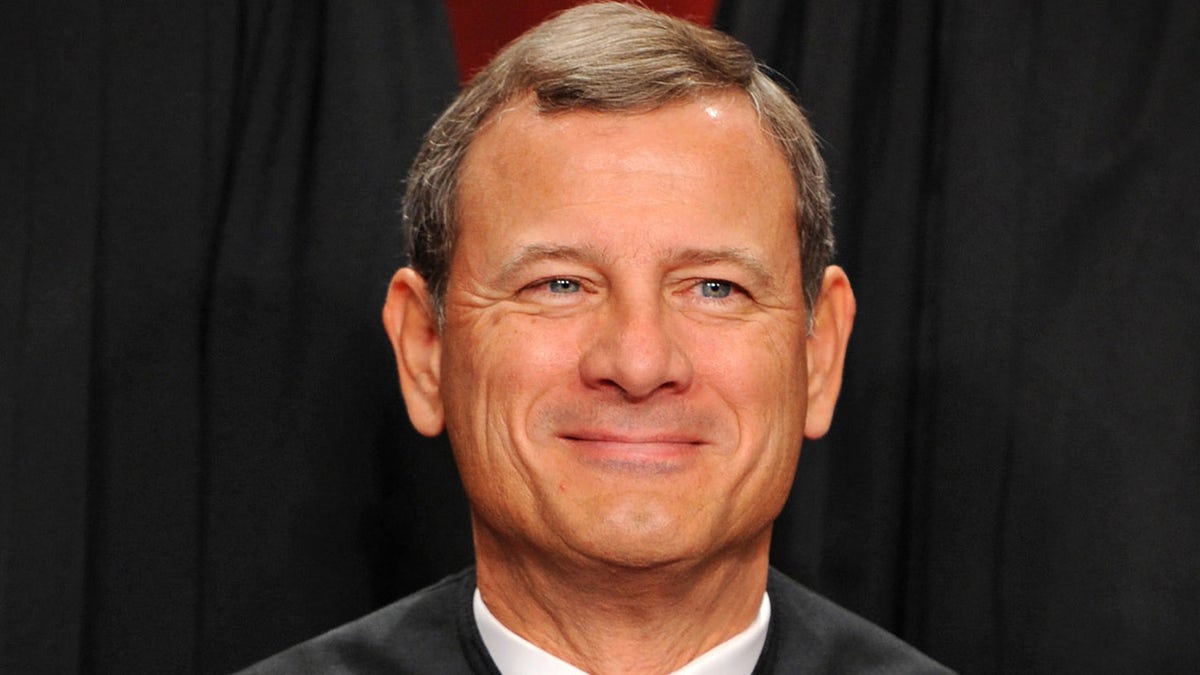
Chief Justice John Roberts, October, 08, 2010 in Washington, DC. (Bill O'Leary/The Washington Post via Getty Images)
"This was a singular and egregious breach of that trust that is an affront to the Court and the community of public servants who work here," Roberts added.
The chief justice said he had called on the Marshal of the Court to open an investigation "into the source of the leak."
Sam Dorman and The Associated Press contributed to this article.


















